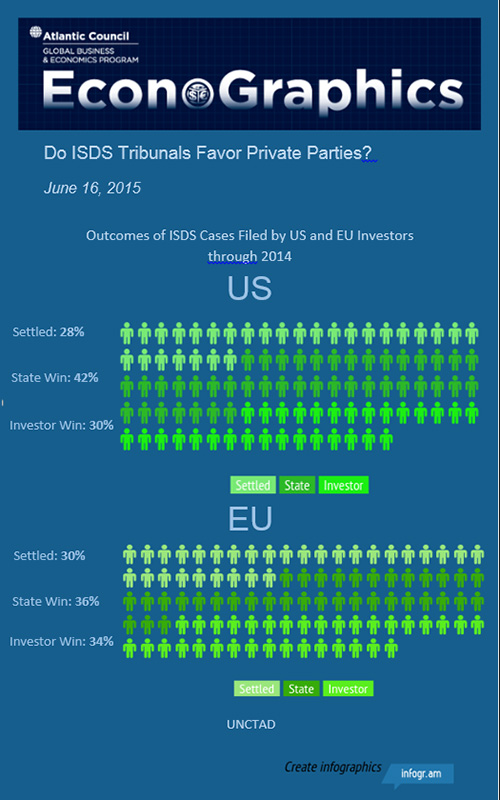Looking at over 400 cases that have been decided through 2014, the rate of success for US and EU investors is 30% and 34%, respectively. Foreign states win against US claimants 42% of the time, and 36% of the time against EU-based firms, with the remainder being settled.

These numbers show that investment arbitration gives roughly equal odds, with a slight advantage to states over investors. However, in debates over investment protections in the TPP (Transpacific Partnership) and TTIP (Transatlantic Trade and Investment Partnership), ISDS is believed to give the upper hand to investors over states.
To appease both US and EU investors and governmental institutions, EU Commissioner Cecilia Malmström has proposed a compromise: judges in ISDS cases (called “arbitrators”) would be chosen from a predetermined list of neutral, third-party members. In current practice, investors and states each nominate an arbitrator and agree on a third.
Source: UNCTAD
http://unctad.org/en/PublicationsLibrary/webdiaepcb2014d4_en.pdf